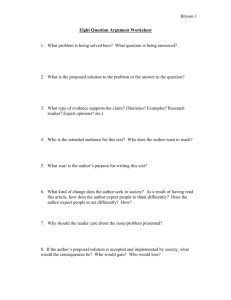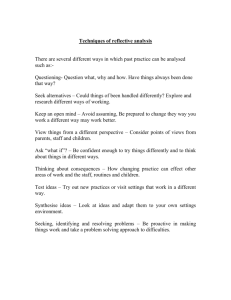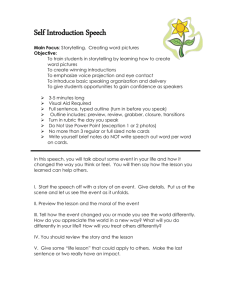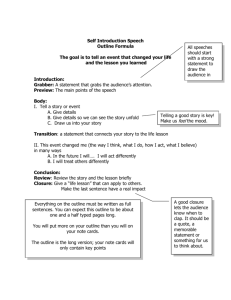Linguistics Assignment: Language & Its Study
advertisement
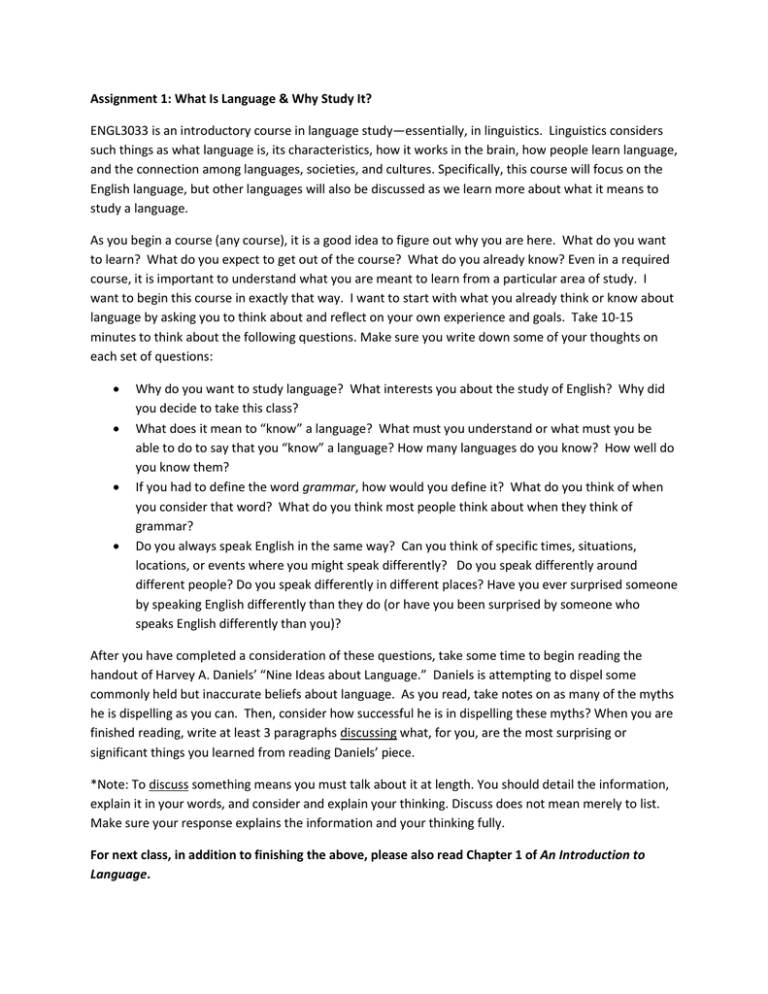
Assignment 1: What Is Language & Why Study It? ENGL3033 is an introductory course in language study—essentially, in linguistics. Linguistics considers such things as what language is, its characteristics, how it works in the brain, how people learn language, and the connection among languages, societies, and cultures. Specifically, this course will focus on the English language, but other languages will also be discussed as we learn more about what it means to study a language. As you begin a course (any course), it is a good idea to figure out why you are here. What do you want to learn? What do you expect to get out of the course? What do you already know? Even in a required course, it is important to understand what you are meant to learn from a particular area of study. I want to begin this course in exactly that way. I want to start with what you already think or know about language by asking you to think about and reflect on your own experience and goals. Take 10-15 minutes to think about the following questions. Make sure you write down some of your thoughts on each set of questions: Why do you want to study language? What interests you about the study of English? Why did you decide to take this class? What does it mean to “know” a language? What must you understand or what must you be able to do to say that you “know” a language? How many languages do you know? How well do you know them? If you had to define the word grammar, how would you define it? What do you think of when you consider that word? What do you think most people think about when they think of grammar? Do you always speak English in the same way? Can you think of specific times, situations, locations, or events where you might speak differently? Do you speak differently around different people? Do you speak differently in different places? Have you ever surprised someone by speaking English differently than they do (or have you been surprised by someone who speaks English differently than you)? After you have completed a consideration of these questions, take some time to begin reading the handout of Harvey A. Daniels’ “Nine Ideas about Language.” Daniels is attempting to dispel some commonly held but inaccurate beliefs about language. As you read, take notes on as many of the myths he is dispelling as you can. Then, consider how successful he is in dispelling these myths? When you are finished reading, write at least 3 paragraphs discussing what, for you, are the most surprising or significant things you learned from reading Daniels’ piece. *Note: To discuss something means you must talk about it at length. You should detail the information, explain it in your words, and consider and explain your thinking. Discuss does not mean merely to list. Make sure your response explains the information and your thinking fully. For next class, in addition to finishing the above, please also read Chapter 1 of An Introduction to Language.
